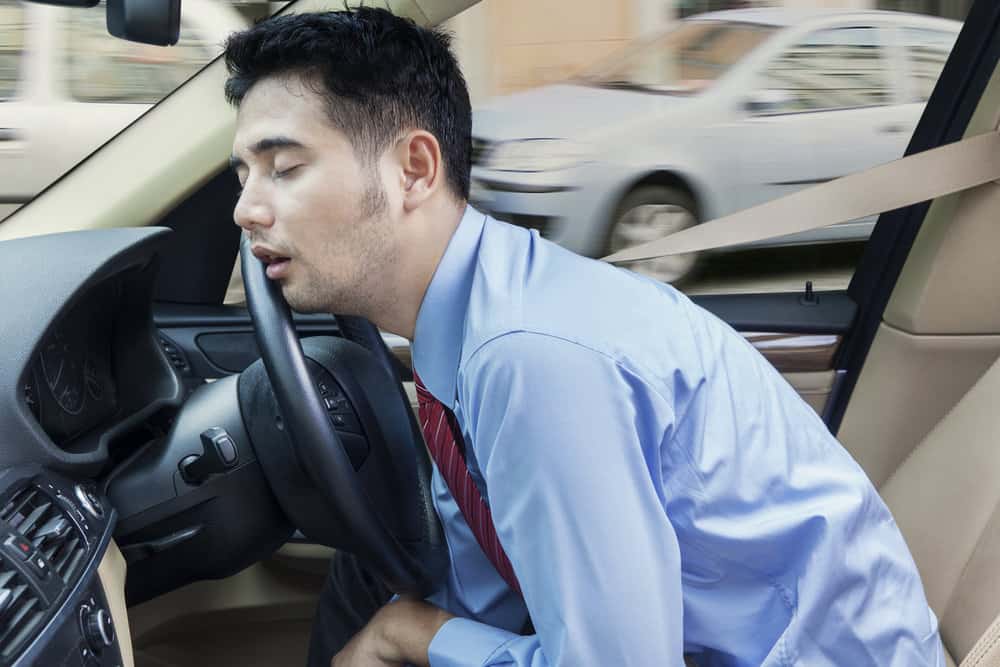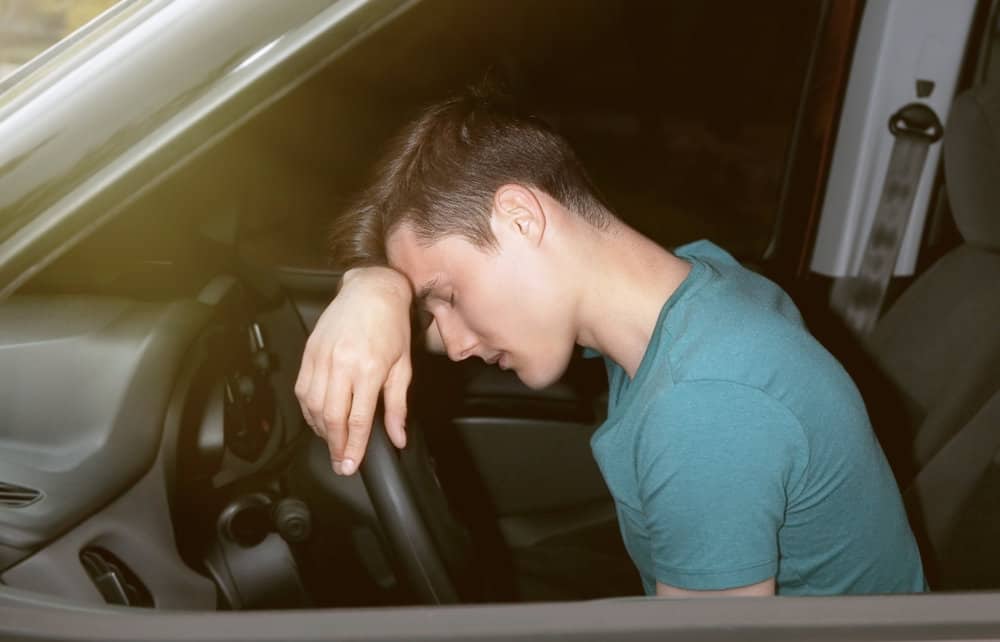It is crucial to recognize that the legality of sleeping in a car is not always straightforward and can vary depending on location, circumstances, and local regulations. To prioritize one’s safety and the safety of others, it is imperative to be informed about the laws surrounding this topic to avoid any negative consequences or penalties.
This article will explore the specific guidelines and regulations in different states and the potential risks and consequences for those who choose to sleep in their vehicles.
Key Takeaways
- The legality of sleeping in a car varies by location and circumstances
- Know safe and legal parking spots to avoid potential risks
- Familiarize yourself with state-specific regulations for clarity
The Legality of Sleeping in Your Car
Regarding the legality of sleeping in your car, there are varying regulations depending on state laws and local ordinances. Understanding the legal aspects of sleeping in your car at the state and local levels could help avoid potential issues and penalties.
State Laws
Each state has its own set of laws concerning the matter. In some states, sleeping in your car is perfectly legal, while in others, it is either restricted or completely prohibited. Generally, states that allow sleeping in your vehicle focus more on the location and the type of road used.
For instance:
- In California, sleeping in your car is allowed if you are not parked in a way that obstructs traffic or on private property without permission.
- Florida law allows for sleeping in one’s car but varies by municipality, and some areas require permits.
It’s essential to stay informed and follow the specific state’s guidelines.
Local Ordinances
Apart from state laws, local ordinances significantly determine the legality of sleeping in your car. Many cities have specific rules that either restrict or outright ban sleeping in your car, often as a response to homelessness issues. Local measures vary greatly, and some cities may have:
- Designation of specific parking zones where overnight sleeping is allowed.
- Strict time limits are imposed on how long one can sleep in their car.
- Additional restrictions are based on the vehicle type (such as RVs or large trucks).
To avoid any trouble, it is crucial to research and follow the local laws in the area where you intend to sleep in your car. Always adhere to posted signs and parking regulations. If unsure about the rules, consider contacting local law enforcement or community officials for guidance.
Safe and Legal Locations
Parking Lots
Many parking lots allow for safe and legal overnight parking. Some cities have designated parking lots for this purpose, while others may require permission from the property owner. It’s important to research specific city or state laws regarding parking in public and private lots. Large chain stores, such as Walmarts, often permit overnight RV parking in their lots, making it a convenient option for travelers.
Rest Stops and Truck Stops
Rest and truck stops are popular overnight parking options, as they are designed to accommodate travelers needing a break. Rest areas and truck stops usually offer amenities, such as restrooms and food options, which make them a comfortable choice. State laws governing overnight parking at rest stops vary; some allow for specific hours, while others may have no restrictions. Always check with the particular rest stop for their guidelines and consider fellow travelers when parking for the night.
Walmart Parking
Walmart is known for being friendly towards overnight parkers, particularly those in RVs. This practice may not be consistent across all Walmarts, and individual store policies may vary. It’s always best to check with the specific Walmart location regarding their overnight parking policy, as some local regulations may prevent them from allowing it. One should respect the property and fellow customers when parking overnight at Walmart.
Potential Consequences and Risks
Tickets and Fines
It is essential to understand that sleeping in your car is not always permitted. Local ordinances and laws may prohibit or restrict car camping. If caught, individuals may be issued a ticket and have to pay a fine. In some areas, car camping is treated similarly to a DUI, as being intoxicated and sleeping in the vehicle could be considered a crime. Researching the specific DUI laws in your location is crucial, as they may differ among regions.
Trespassing
Trespassing is another potential consequence when sleeping in a car. While some establishments, such as Walmart, allow overnight parking in their lots, others might want to evict car dwellers. It is essential to always ask the manager or owner of a property for permission to park overnight. Failure to do so can result in trespassing charges.
Dangerous Situations
There are several risks involved with sleeping in a car. Multiple factors can lead to dangerous situations, such as:
- Insurance: Your car insurance may not cover you for damages or injuries sustained while sleeping in your vehicle.
- Intoxicated: There could be legal ramifications if you are intoxicated and inside your car. Always remain aware of the DUI laws in your area to avoid inconveniences.
- Sleep Quality: Sleeping in a car can be uncomfortable or lead to inadequate sleep, which may impact driving abilities the following day.
Taking proper precautions and checking the local laws can help minimize the risks and consequences of sleeping in your car.
Sleeping in Your Car by State
Alabama to Iowa
In Alabama, there is no statewide law prohibiting sleeping in your car. However, local laws may vary by city or county. In Florida, sleeping in a car in public areas may be considered illegal, while in Georgia, it is generally allowed as long as you are not parked in a place where it is expressly prohibited.
South Carolina has no statewide law on car sleeping, so local laws and regulations will apply. Similarly, Texas has no statewide restriction, but local ordinances may differ. Alaska allows sleeping in your car in designated rest areas but prohibits it in certain cities.
No state law prohibits sleeping in your car in Arkansas, but local rules may differ. California has no statewide law, but restrictions may apply in different cities. Connecticut and Hawaii have no statewide laws on the issue, but local regulations may vary.
Indiana allows sleeping in your car in some rest areas and on private property with permission. At the same time, Iowa has no statewide law regarding sleeping in your car, leaving it to local ordinances.
Kansas to Montana
In Kansas, sleeping in your car is allowed in rest areas for up to 24 hours. Louisiana has no statewide law, but local ordinances may differ. Maine allows sleeping in rest areas for up to 6 hours but prohibits it in certain cities.
Massachusetts has no statewide law, but individual cities may have regulations. There is no statewide law on car sleeping in Mississippi, but local ordinances can vary. Missouri and Montana also do not have statewide laws, and car sleeping regulations will depend on local rules.
Nebraska to Oregon
Nebraska has no statewide law on sleeping in cars, but local rules may vary. Sleeping in a vehicle in rest areas is generally allowed in Nevada and New Jersey, but remember that local ordinances can differ.
New York has no statewide law regarding car sleeping, but local regulations can vary. North Carolina has no statewide law on the issue, and local rules will apply. In North Dakota, sleeping in your car is allowed in rest areas for up to 3 hours.
Ohio allows car sleeping in rest areas but prohibits it in certain cities. Oklahoma and Rhode Island do not have statewide laws, and local regulations will determine whether car sleeping is allowed. Tennessee allows sleeping in your car in rest areas, while Vermont has no statewide law on the issue, and local rules may apply.
In Virginia, sleeping in your car is generally allowed in rest areas, as in Wisconsin. However, check for local restrictions in both states.
Pennsylvania to Wyoming
Pennsylvania allows sleeping in your car at rest areas and travel plazas. South Dakota has no statewide law, but local ordinances may vary. In Utah, car sleeping depends on local rules.
Washington has no statewide law, and local rules will apply. West Virginia has no statewide law, and local regulations will decide whether car sleeping is allowed. Wyoming allows sleeping in your car in rest areas and designated campgrounds.
Remember, regardless of statewide laws, local ordinances can differ. Always be aware of local rules and regulations when considering sleeping in your car.
Additional Considerations
Carbon Monoxide Risks
Sleeping in your car can pose several risks, including carbon monoxide poisoning. Carbon monoxide is a colorless, odorless, and tasteless gas produced by the incomplete combustion of fuels, such as gasoline. If a car’s engine is running for an extended period while someone is sleeping inside, there is a risk of carbon monoxide building up in the vehicle. Signs of carbon monoxide poisoning include dizziness, headache, nausea, and confusion. Ensuring proper ventilation and avoiding running the engine while sleeping in the car is essential.
State Overnight Parking at Rest Stops
Each state has its regulations regarding overnight parking at rest stops. Some states allow sleeping in vehicles at designated rest stops for a limited time, usually between 8 and 10 hours. Other states may have stricter rules, prohibiting sleeping in your car altogether or only allowing it in specific areas, such as designated campgrounds.
To avoid breaking any state or federal laws, it is crucial to research the overnight parking regulations in the area you plan to sleep in your car. You should also follow any posted signs at rest stops or other public areas where you intend to sleep.
Frequently Asked Questions
Is Overnight car sleeping allowed?
It depends on the location and local laws. In some places, sleeping in your car overnight is perfectly legal, while in others, it may be prohibited. Researching and understanding the rules and regulations in the area you plan to sleep in is essential.
What are the reasons for illegality in the USA?
There are several reasons why sleeping in your car might be illegal in some regions of the United States. Some common causes include public health and safety concerns, public nuisance issues, trespassing on private property, and local ordinances prohibiting overnight parking.
Car sleeping rules in NYC?
In New York City, sleeping in your car is generally not allowed overnight. Parking regulations prohibit using vehicles as living quarters while parking on public streets. Additionally, it could be considered a violation of the city’s no-idling law if the engine is running.
Nashville car sleeping laws?
In Nashville, no specific law prohibits sleeping in your car overnight. However, there may be restrictions on where you can park your vehicle, and you could be subject to fines or towing if parked in a prohibited area.
Safety concerns in the car?
There are some safety concerns to consider when sleeping in your car. These may include potential dangers from carbon monoxide poisoning if the engine is running, lack of ventilation, risk of theft or break-ins, and the possibility of being towed if parked in a restricted area.
California car sleeping laws?
California car sleeping laws vary by city and county. In some places, it may be legal to sleep in your car, while in others, there could be restrictions or outright bans. It is best to research local regulations before sleeping in your car overnight.




